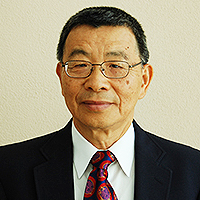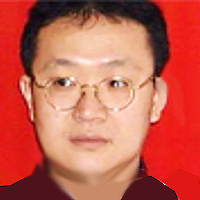The rising role of natural killer cells in patients with malignant hematological disorders and in recipients of hematopoietic stem cell transplantation
Published on: 1st October, 2019
OCLC Number/Unique Identifier: 8333010200
Natural killer (NK) cells, the third population of lymphoid cells, comprise 5%-25% of peripheral blood (PB) lymphocytes and represent the first line of defense against infections and tumors [1-7]. They can be derived from: bone marrow, PB, cryopreserved umbilical cord blood (UCB), human embryonic stem cells (hESCs), induced pluripotent stem cells (iPSCs), and various cell lines such as NK-92 and KHYG-1 [1]. NK cells; which have been divided into cytotoxic, tolerant, and regulatory subsets; are classified into: (1) naïve CD56 bright CD 16 dim CD 3 dim cells, (2) mature CD56 dim CD16 bright CD3 dim cells, and (3) lymphoid tissue-resident CD69+/CXCR6+ NK cells [1,2,8-11]. Although NK cells have been traditionally considered as part of the innate immune system, they have recently been shown to exhibit many of the features associated with adaptive immunity [8,12]. The functions of NK cells which are influenced by several cytokines include: elimination of infected cells, destruction of cancer cells, reducing the incidence of graft versus host disease (GVHD) following hematopoietic stem cell transplantation (HSCT), and regulation of pregnancy outcome [10,11,13].
Natural killer cells in patients with hematologic malignancies, solid tumors and in recipients of hematopoietic stem cell transplantation
Published on: 9th December, 2019
OCLC Number/Unique Identifier: 8440596237
Natural killer cells represent the first line of defense against infections and tumors and can be derived from various sources including: bone marrow, peripheral blood, specific types of human stem cells, and certain cell lines. The functions of natural killer cells are influenced by: several cytokines, activating and inhibitory receptors, as well as other immune cells such as dendritic cells and mesenchymal stem cells.
Natural killer cells are attractive candidates for adoptive cellular therapy in patients with hematologic malignancies and solid tumors in addition to recipients of various forms of hematopoietic stem cell transplantation as they enhance antitumor effects without causing graft versus host disease. Several clinical trials have shown safety and efficacy of natural killer cell products obtained from autologous as well as allogeneic sources and used in conjunction with cytotoxic chemotherapy, monoclonal antibodies and novel agents.
The following review, which includes extensive literature review on several aspects of natural killer cells, will give particular attention to: the rising role of natural killer cell therapies in patients with malignant hematological disorders, solid tumors and in recipients of stem cell therapies; preparation and manufacture of natural killer cell products; challenges facing the utilization of this form of cellular therapy including evolution of resistance; and maneuvers that can be employed to enhance the efficacy of natural killer cell therapies as well as suggested solutions to resolve the remaining challenges.
The beneficial effects of varicella zoster virus
Published on: 15th July, 2019
OCLC Number/Unique Identifier: 8186245399
Varicella zoster virus behaves differently from other herpes viruses as it differs from them in many aspects. Recently, there has been growing evidence on the beneficial effects of the virus in immune compromised hosts and these effects are translated into prolongation of survival. The reported beneficial effects of the virus include: (1) stimulation of bone marrow activity in patients with hematologic malignancies and bone marrow failure syndromes, (2) antitumor effects in various hematologic malignancies and solid tumors, and (3) association with graft versus host disease which has anticancer effects. Additionally, there are several reports on the safety of the live-attenuated even in severely immune suppressed individuals and on the emerging role of the virus in cancer immunotherapy. In this review, the following aspects of the virus will be thoroughly discussed: (1) new data on the genetic background, pathogenesis, vaccination, and new therapeutic modalities; (2) bone marrow microenvironment and hematopoiesis; (3) cells involved in the pathogenesis of the virus such as: mesenchymal stem cells, dendritic cells, natural killer cells, T-cells and mononuclear cells; (4) cellular proteins such as open reading frames, glycoproteins, promyelocytic leukemia protein, chaperons, and SUMOs; (5) extracellular vesicles, exosomes, and micro-RNAs; and (6) signaling pathways, cytokines, and interferons.
















